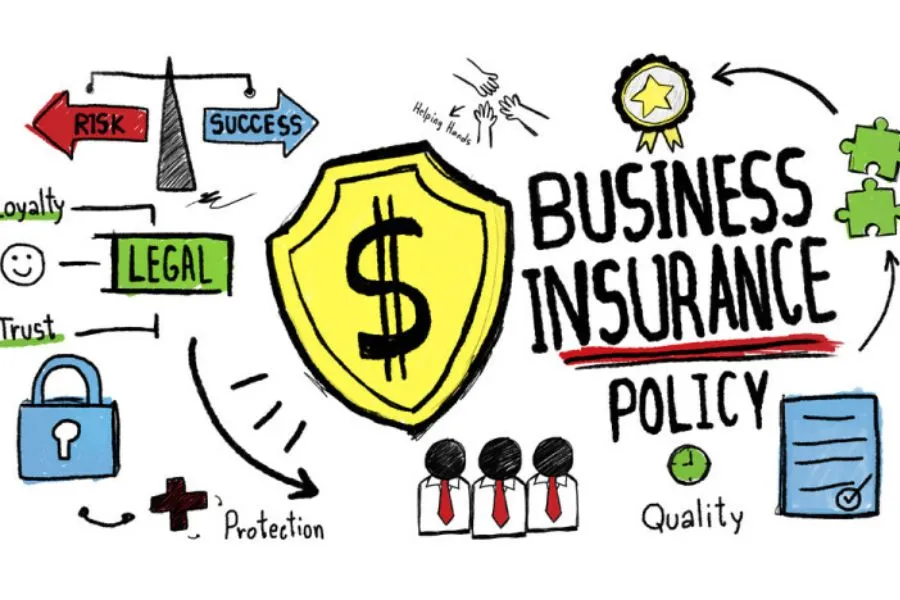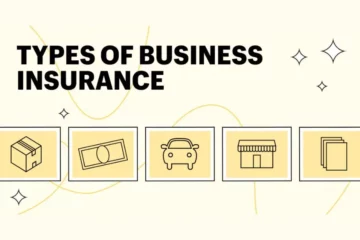How to Get the Most Out of Your Business Insurance Policy: Tips and Tricks

Business Insurance Policy
As a business owner, it’s essential to review your insurance policy regularly to ensure that you’re fully covered against potential risks and liabilities. Insurance policies can change over time, and your business needs may evolve, so it’s crucial to keep up with any policy updates or changes.
When reviewing your policy, consider your business’s current needs and risks, and make sure that your coverage aligns with those factors. Additionally, take stock of any changes in your business’s assets, such as equipment or property, and ensure that they’re adequately covered under your policy.
It’s also essential to review your policy’s coverage limits, deductibles, and exclusions to ensure that you have the right level of protection in place. If you’re unsure about any aspect of your policy, don’t hesitate to reach out to your insurance provider for clarification. By regularly reviewing your policy, you can ensure that you’re fully covered and avoid any surprises in the event of a loss or liability.
Understanding Your Coverage Options
There are many different types of insurance coverage options available for businesses, and it’s essential to understand which ones are right for your specific needs.
General Liability Insurance is one of the most common types of coverage and can protect your business against claims of bodily injury, property damage, and advertising injury. Another important type of coverage is Professional Liability Insurance, which can protect your business against claims of negligence or errors and omissions.
Other types of coverage to consider include Property Insurance, Business Interruption Insurance, and Cyber Liability Insurance. It’s important to work with your insurance provider to identify which types of coverage are appropriate for your business and ensure that you have the right level of protection in place.
Factors That Affect Your Insurance Premiums
There are several factors that can affect your insurance premiums, including your business’s size, industry, location, and claims history. Insurance providers use these factors to assess your business’s level of risk and determine your premiums accordingly.
To minimize your insurance premiums, consider implementing risk management strategies such as improving workplace safety, maintaining proper documentation, and implementing cybersecurity measures. Additionally, consider bundling your insurance policies with one provider or increasing your deductibles to lower your premiums.
It’s also important to shop around and compare insurance providers to ensure that you’re getting the best coverage at the most competitive rates.
How to Reduce Your Insurance Costs
Reducing your insurance costs can help you free up resources to invest in other areas of your business. Here are some tips for reducing your insurance costs:
- Increase your deductibles: Increasing your deductibles can lower your insurance premiums, but make sure that you can afford the deductible in the event of a loss.
- Bundle your policies: Bundling your insurance policies with one provider can result in lower premiums and simplify your insurance management.
- Implement risk management strategies: Reducing your business’s risk factors can lower your insurance premiums. Consider improving workplace safety, maintaining proper documentation, and implementing cybersecurity measures.
By taking steps to reduce your insurance costs, you can ensure that your business is protected while also minimizing your expenses.
Tips for Maximizing Your Coverage
To get the most out of your insurance coverage, consider the following tips:
- Work with an insurance broker: An insurance broker can help you identify the right types of coverage for your business and negotiate with insurance providers on your behalf.
- Maintain proper documentation: Proper documentation can help support your claims and protect your business in the event of a loss or liability.
- Train your employees: Properly trained employees can help reduce workplace accidents and minimize your business’s risk factors.
- Review your policy regularly: Regularly reviewing your policy can ensure that you’re fully covered and avoid any surprises in the event of a loss or liability.
By implementing these tips, you can maximize your coverage and ensure that your business is fully protected.
Common Mistakes to Avoid with Your Business Insurance Policy
When it comes to business insurance, there are several common mistakes that business owners make. Here are a few to avoid:
- Underinsuring your business: Underinsuring your business can leave you vulnerable in the event of a loss or liability. Make sure that you have adequate coverage in place.
- Failing to disclose information: Failing to disclose relevant information to your insurance provider can result in a denied claim or policy cancellation.
- Not reviewing your policy regularly: Failing to review your policy regularly can result in gaps in coverage or inadequate protection.
- Choosing the cheapest policy: While it’s important to keep costs in mind, choosing the cheapest policy may not provide the level of protection your business needs.
By avoiding these common mistakes, you can ensure that your business is fully protected and avoid any unnecessary risks.
The Benefits of Working with an Insurance Broker
Working with an insurance broker can provide several benefits for your business. An insurance broker can help you identify the right types of coverage for your business, negotiate with insurance providers on your behalf, and provide ongoing support for your insurance needs.
Additionally, an insurance broker can help you understand the nuances of insurance policies and ensure that you’re fully covered against potential risks and liabilities. By working with an insurance broker, you can simplify your insurance management and ensure that you have the right level of protection in place.
Additional Resources for Business Insurance Information
There are many resources available for business owners looking to learn more about insurance. Some helpful resources include:
- The National Association of Insurance Commissioners: The NAIC provides consumer guides and resources for understanding insurance policies and regulations.
- The Insurance Information Institute: The III provides educational resources and FAQs about insurance policies and coverage options.
- Your insurance provider: Your insurance provider can provide additional information and support for your insurance needs.
By leveraging these resources, you can become more informed about insurance policies and ensure that your business is fully protected.
Conclusion and Next Steps
Protecting your business with a comprehensive insurance policy is crucial to safeguarding your investments and assets. By understanding your coverage options, reviewing your policy regularly, and implementing risk management strategies, you can maximize your coverage and ensure that you’re fully protected against potential risks and liabilities.
Additionally, consider working with an insurance broker to simplify your insurance management and ensure that you have the right level of protection in place. By taking these steps, you can protect your business and ensure its continued success.








